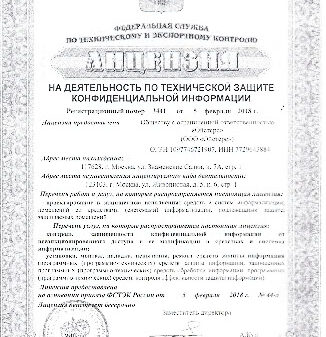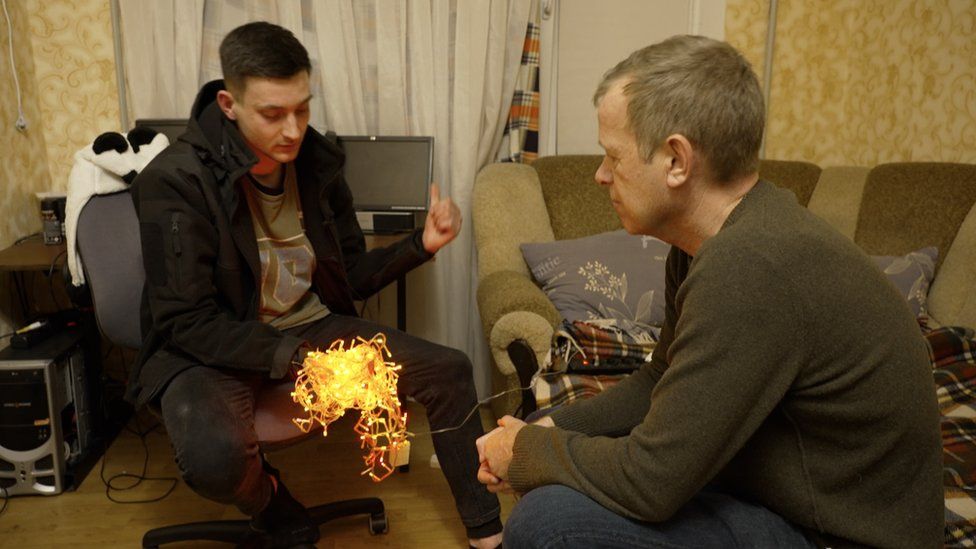Suspicion thrives on conflict and after a month of war in Ukraine, the fear that Russian saboteurs may be operating is hardening into a certainty. But how much is fact, backed up by intelligence reports and arrests, and how much is something closer to mass hysteria, fuelled by social media rumours about mysterious lights and signs?

“It was my neighbours from this stairwell who came to see me. They were scared about security,” said Bohdan Mylko, a 22-year-old engineer sharing an apartment on the northern edge of Odesa.
Fifteen minutes later, the police were at his door, asking about a red light in his bedroom window.
“It’s paranoia, based on fake news about red lights being a sign to the Russians. I had to go to the police station and get my documents checked, make a statement, and get my photo taken.
“The police realised that I’m just a normal guy and let me go home. I’m not trying to help the Russians,” said Mylko, holding up the set of flashing fairy lights that prompted the police’s intervention.

Moments after we visited him, one evening shortly before curfew, we were stopped on the street outside by a group of residents who asked to see our documents.
“You could be Russians,” said an elderly woman who gave her name as Valya.
“What are you doing here? We have small children. We don’t want anything to happen to them. Maybe someone will drop a bomb here tomorrow,” said another woman, as the wail of an air raid siren rose over the apartment complex.
Such concerns are understandable in a city, and a country, still reeling from the shock of Russia’s invasion. Similar behaviour has been noted in many other conflicts, from Syria to Chechnya and beyond.
“This is not paranoia. There are Russian agents and citizens of Ukraine working against us. That’s a fact,” said Capt Volodymir Kalina from the Odesa police.
But he acknowledged there was a strong element of disinformation involved and accused Russia of deliberately trying to stir up public fear.
“They’re trying to distract us, to make us pay attention to the wrong places – to clear us from one part of the city so they can carry out their work in another area,” he said.

Along the coast, a few kilometres south of Odesa city’s historic centre in an area known for its nightclubs and beach bars, retired businessman Dmitro Novak, 71, was beginning his morning shift with a neighbourhood patrol.
He pointed to a black arrow painted on a wall, and explained he had covered it in case it was a sign for Russian troops. A few minutes later, he stopped on a set of steps beside a large, empty office building overlooking the sea.
“I saw a big light there. It was directed towards the night sky. My neighbours saw it too. It was on the roof of this building. For sure it was a signal to the Russian fleet. Some kind of signal.
“We called the authorities, and they came immediately, and the light was switched off. So now we’re looking carefully around for any other signals, or marks. Everybody is alert. We’re changing shifts every two hours,” said Novak.
Last week, Russian naval artillery shelled the area, with some missiles landing just off the beach and several others hitting residential homes, but causing no casualties.

Hanna Shelest, a prominent analyst in Odesa who advises the Ukrainian parliament on security issues, backed up concerns that Ukrainians or Russians were providing information to the Russian military.
“The first aim is the storage of weapons and ammunition in town in case street fighting starts here,” she explained. “The second is to spread disinformation and gossip.
“The third aim is to mark directions in the city with signs for which way to go in case there is an amphibious landing by the Russians. And the fourth is to mark targets – either visually or with electronic signals – for artillery or airstrikes.”
Ukrainian media has broadcast numerous videos showing police arresting alleged Russian saboteurs. President Volodymyr Zelensky was also shown handing out medals to a group of police security agents credited with apprehending suspected Russian saboteurs and reconnaissance groups.
But it is worth noting that, for all the fear and suspicion aroused by such reports, the evidence so far suggests that a few isolated Russian cells have, so far, been remarkably unsuccessful, and that Ukrainian public opinion – directly contradicting Russian propaganda – has hardened and united against the Kremlin’s invasion.
The idea that partisans or “fifth columnists” might be activated effectively in Ukraine would appear to have been entirely fanciful.
“Ukraine’s security services are definitely monitoring those under suspicion. And we already know some people have been arrested. But as for anything more serious – it is probably not their time, yet,” said Dr Shelest.

War in Ukraine: More coverage
- LIVE: Latest updates from Ukraine and nearby
- APPROACH TO KYIV: Battle on capital’s outskirts
- VIDEO: Father killed trying to escape
- MOSCOW SHIFT: Change of emphasis or admission of failure?
- READ MORE: Full coverage of the crisis


























